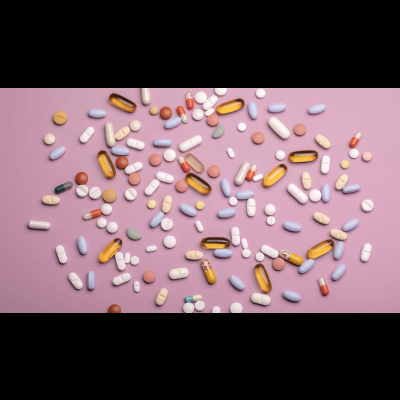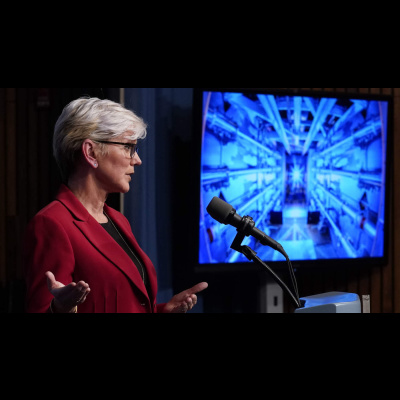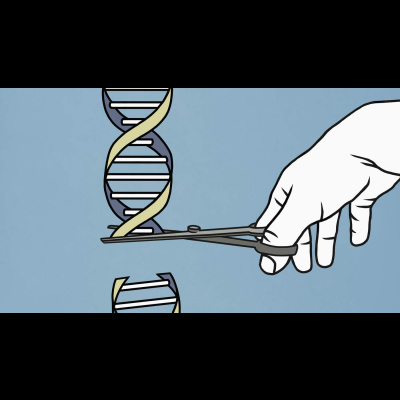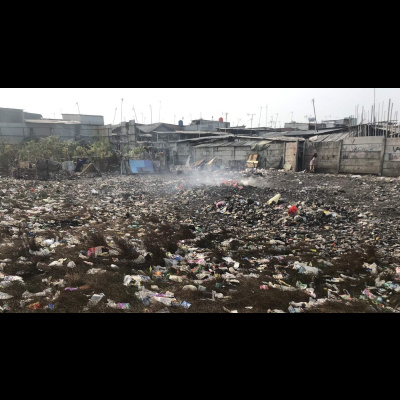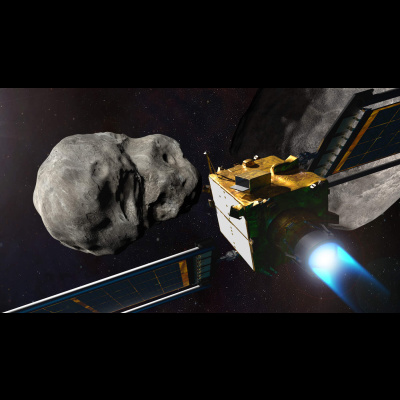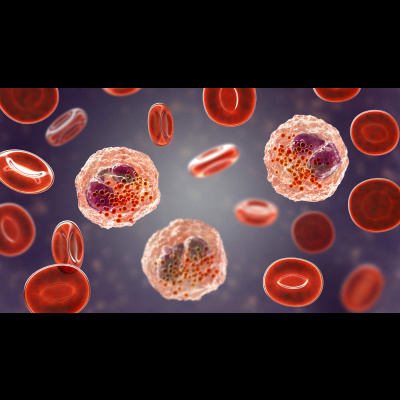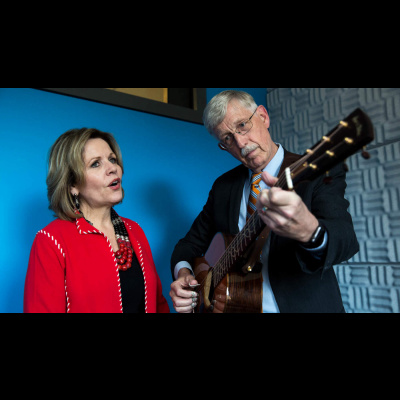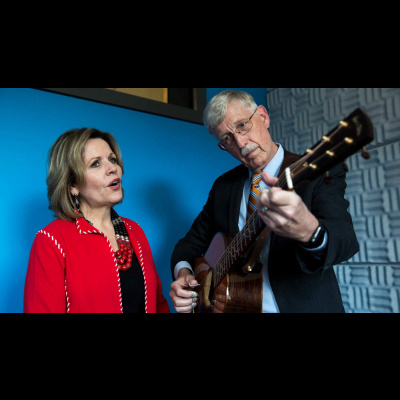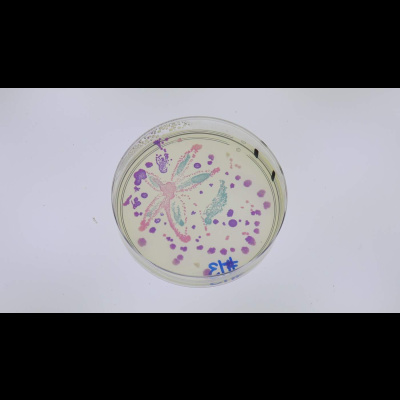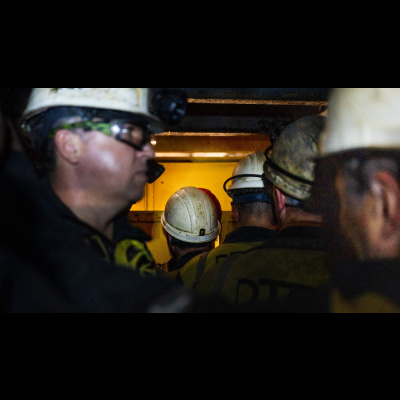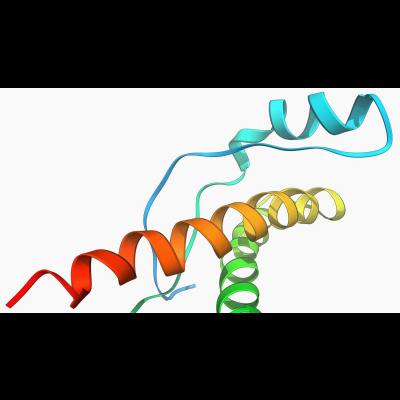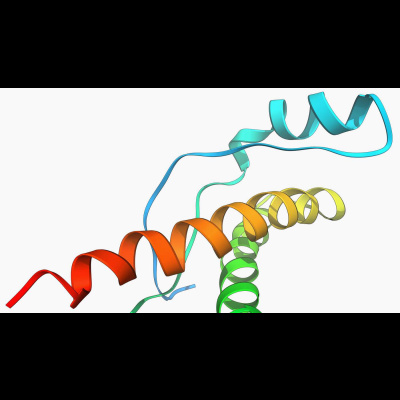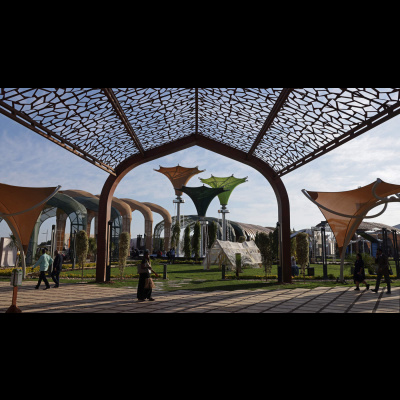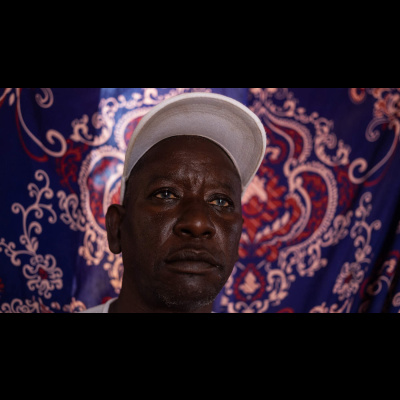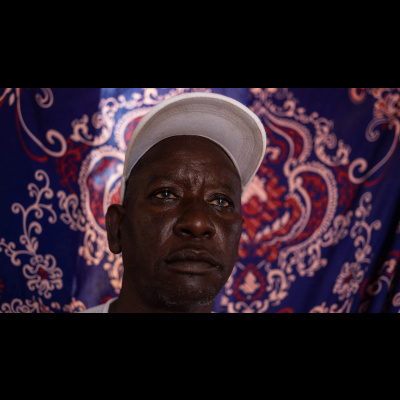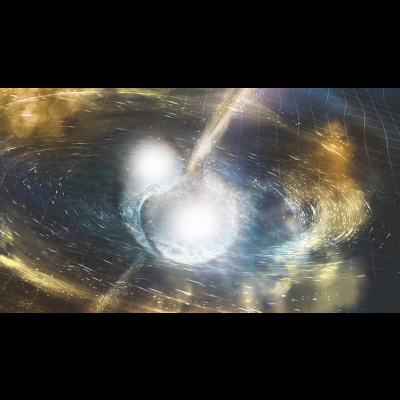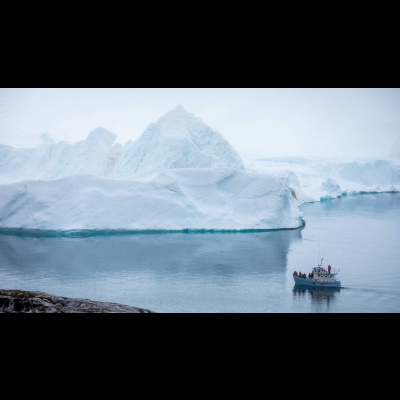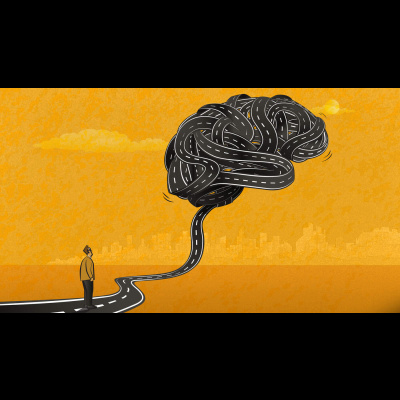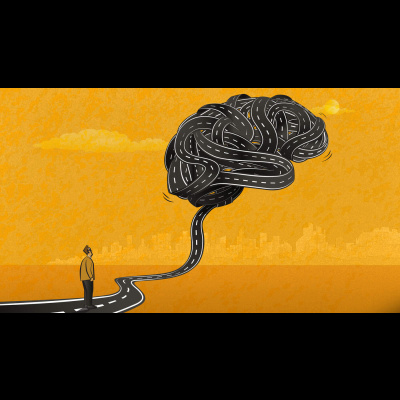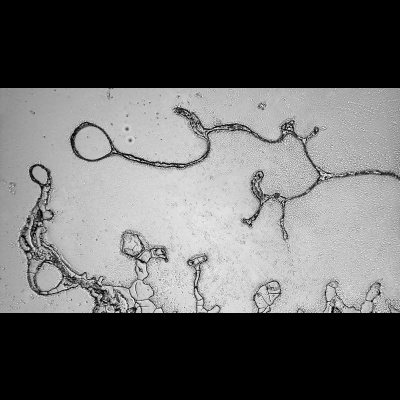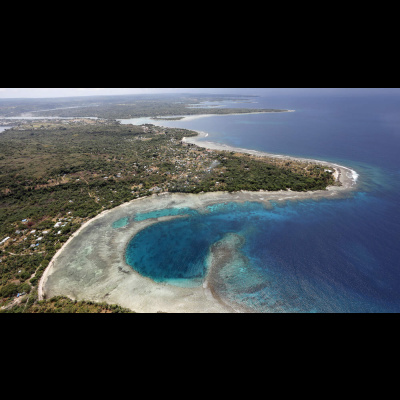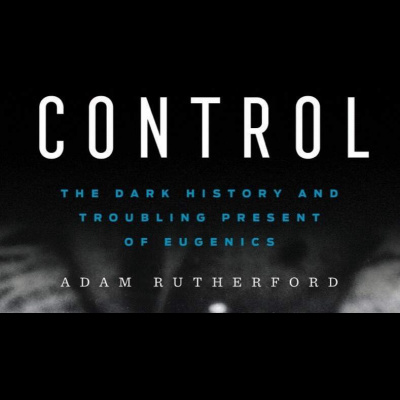
Short Wave Plus
By NPR
New discoveries, everyday mysteries, and the science behind the headlines — all in about 10 minutes, every weekday. It's science for everyone, using a lot of creativity and a little humor. Join hosts Emily Kwong and Aaron Scott for science on a different wavelength.
Your Multivitamin Won't Save You
Dietary supplements — the vitamins, herbs and botanicals that you'll find in most grocery stores — are everywhere. More than half of U.S. adults over 20 take them, spending almost $50 billion on vitamins and other supplements in 2021. Yet decades of research have produced little evidence that they really work. Aaron Scott talks to Dr. Jenny Jia about the science of dietary supplements: which ones might help, which ones might hurt, and where we could be spending our money instead.
Dec 19, 202210:20
The Hope For Slowing Amazon Deforestation
Brazil's president-elect, Luiz Inacio Lula da Silva, is renewing calls to protect the Amazon and reign in the deforestation. Climate scientists are encouraged but so far there aren't a lot of specifics of how this might happen. NPR's Kirk Siegler traveled to a remote Amazonian research station that is also threatened by illegal logging and talks to host Aaron Scott about his trip.
Dec 16, 202212:14
A Step Closer To Nuclear Fusion Energy
On Dec. 5 at 1 o'clock in the morning local time, researchers at the Lawrence Livermore National Laboratory in California used lasers to zap a tiny pellet of hydrogen fuel. The lasers hit their target with 2.05 megajoules of energy, and the pellet released roughly 3.15 megajoules. It's a major milestone, and one that the field of fusion science has struggled to reach for more than half a century: producing a fusion reaction that generates more energy than it consumes. While progress, the technology is still a ways off from its promise to produce energy without creating greenhouse gases. Today on the show, Regina G. Barber brings us two NPR stories that explain what this experiment showed and what else needs to happen to make fusion a practical energy source.
Dec 15, 202208:17
From Scientific Exile To Gene Editing Pioneer
Gene editing was a new idea in the mid-1970s. So when Harvard and MIT planned new research in recombinant DNA, alarm bells went off. "People were worried about a 'Frankengene,'" says Lydia Villa-Komaroff, then a freshly minted PhD. Amidst a political circus, the city of Cambridge, Massachusetts banned research into recombinant DNA, forcing scientists like Villa-Komaroff into exile. But that turned out to be just the prelude to a breakthrough. In this episode, Dr. Villa-Komaroff tells Emily Kwong the story of overcoming the skeptics and coaxing bacteria into producing insulin for humans.
Dec 14, 202211:42
You Know That Gut Feeling You Have?...
TFW when you're so excited you get those butterflies in your stomach - or maybe when you see something icky, you feel ill. On today's show, producer Berly McCoy looks at this relationship between our gut and our brain. Berly talks to host Emily Kwong about how the organs evolved to have a tight connection - connections that go beyond transient feelings of excitement or disgust. In fact, an increasing body of research shows links between the gut and conditions we typically associate mostly with the brain – like anxiety and Parkinson's Disease.
Here's a link to the study about gut bacteria and the brain in some children with Autism Spectrum Disorder. https://www.theautismstudy.com/study
Here's a link to the study about gut bacteria and the brain in some children with Autism Spectrum Disorder. https://www.theautismstudy.com/study
Dec 13, 202213:36
The Myth of Plastic Recycling
For many, recycling feels like a tangible way to personally combat climate change and to positively affect the environment. But after a years long investigation, NPR correspondent Laura Sullivan finds that reality is generally the opposite: Only a small fraction of plastic is ultimately recycled. Moreover, plastic production is on the rise.
Further reading:
- Recycling plastic is practically impossible — and the problem is getting worse
- How Big Oil Misled The Public Into Believing Plastic Would Be Recycled
Further reading:
- Recycling plastic is practically impossible — and the problem is getting worse
- How Big Oil Misled The Public Into Believing Plastic Would Be Recycled
Dec 12, 202213:49
DART: The Impacts Of Slamming A Spacecraft Into An Asteroid
If an asteroid were hurling through space, making a beeline straight to Earth, how would humans prevent it from doing what it did to the dinosaurs? Would we bomb it? Would we shoot lasers at it like a scene from Hollywood's latest sci-fi flick? Well, the folks at NASA have designed and tested a theory.
"The DART mission, the Double Asteroid Redirection Test, is essentially our first test of a kinetic impact for planetary defense." says Cristina Thomas, assistant professor of Astronomy and Planetary Science at Northern Arizona University.
Put simply, scientists at NASA took a spacecraft and crashed it into an asteroid — hoping the little nudge, like bumper cars, would be enough to push the asteroid off course.
Today on the show, Short Wave's scientist-in-residence Regina G. Barber talks to Cristina Thomas about what it was like watching the success of the DART mission and what this means for science and planetary defense.
Email Short Wave at ShortWave@NPR.org. Or, follow us on Twitter at @NPRShortWave.
"The DART mission, the Double Asteroid Redirection Test, is essentially our first test of a kinetic impact for planetary defense." says Cristina Thomas, assistant professor of Astronomy and Planetary Science at Northern Arizona University.
Put simply, scientists at NASA took a spacecraft and crashed it into an asteroid — hoping the little nudge, like bumper cars, would be enough to push the asteroid off course.
Today on the show, Short Wave's scientist-in-residence Regina G. Barber talks to Cristina Thomas about what it was like watching the success of the DART mission and what this means for science and planetary defense.
Email Short Wave at ShortWave@NPR.org. Or, follow us on Twitter at @NPRShortWave.
Dec 09, 202214:08
The Biologist Who Talks With Cells
The human body is made up of more than 30 trillion cells, but how do they all work together? It's all about communication! "They talk through molecules going from one cell to the adjacent cell," says Dr. Sandra Murray, a professor of cell biology and physiology at the University of Pittsburgh who studies how cells communicate with each other to do complex tasks, like close a wound or deliver a baby. <br /><br />This year, Dr. Murray became the first person of color elected as president of the American Society for Cell Biology. She talks with host Aaron Scott about the beautiful language of cells, how she made her way as a Black woman in STEM, and what gives her hope in her field today.
Dec 08, 202214:48
What Makes Hawaii's Erupting Volcanoes Special
Just after Thanksgiving, for the first time in almost 40 years, Hawaii's Mauna Loa volcano erupted. It's one of several ongoing eruptions – including Kilauea, also on Hawaii, and Indonesia's Mount Semeru. At just over half the size of the big island of Hawaii, Mauna Loa is the world's biggest active volcano.
Today, volcanologist Alison Graettinger talks to Scientist in Residence Regina G. Barber about what makes Mauna Loa's eruption different than Indonesia's and others around the Pacific, and what it reveals about planet Earth.
Watch the U.S. Geological Survey's live video of the eruption here.
Today, volcanologist Alison Graettinger talks to Scientist in Residence Regina G. Barber about what makes Mauna Loa's eruption different than Indonesia's and others around the Pacific, and what it reveals about planet Earth.
Watch the U.S. Geological Survey's live video of the eruption here.
Dec 07, 202212:06
'One Mississippi...' How Lightning Shapes The Climate
When lightning strikes a giant tree in the tropical rainforest, there's usually no fire, no blackened crater — you might not even notice any damage. But come back months later, as Evan Gora does, and you may find that tree and dozens around it dead. Gora, a forest ecologist who studies lightning in tropical forests, says we are just beginning to understand how lightning actually behaves in these forests, and what its implications are for climate change. On today's episode, Evan Gora tells Aaron Scott about shocking discoveries in lightning research, and why Evan has developed a healthy respect for the hazards it poses – both to individual researchers and to the forests that life on Earth depends on.
Dec 06, 202212:02
Don't Call It Dirt: The Science Of Soil
It's easy to overlook the soil beneath our feet, or to think of it as just dirt to be cleaned up. But soil wraps the world in an envelope of life: It grows our food, regulates our climate, and makes our planet habitable. "What stands between life and lifelessness on our planet Earth is this thin layer of soil that exists on the Earth's surface," says Asmeret Asefaw Berhe, a soil scientist at the University of California-Merced.
Just ... don't call it dirt.
"I don't like the D-word," Berhe says. Berhe says soil is precious, taking millennia to regenerate. And with about a third of the world's soil degraded, according to a UN estimate, it's also at risk. Prof. Berhe, who is also serving as Director of the U. S. Dept. of Energy's Office of Science, marks World Soil Day by telling Aaron Scott about the hidden majesty of soil and why it's crucial to tackling the climate crisis.
Just ... don't call it dirt.
"I don't like the D-word," Berhe says. Berhe says soil is precious, taking millennia to regenerate. And with about a third of the world's soil degraded, according to a UN estimate, it's also at risk. Prof. Berhe, who is also serving as Director of the U. S. Dept. of Energy's Office of Science, marks World Soil Day by telling Aaron Scott about the hidden majesty of soil and why it's crucial to tackling the climate crisis.
Dec 05, 202211:35
Arts Week: Physics Meets The Circus
Julia Ruth's job takes a lot of strength, a lot of balance, and a surprising amount of physics. She's a circus artist — and has performed her acrobatic Cyr wheel routine around the world. But before she learned her trade and entered the limelight, she was on a very different career path — she was studying physics. Julia talks with Emily (who also shares a past life in the circus) about her journey from physicist to circus artist, and how she learned her physics-defining acts.
Dec 02, 202212:30
Arts Week: The Life Cycle Of A Neuron
An exhibit that blended science and technology for an immersive art experience went on display in Washington, DC and New York City in 2021 and 2022. It invited visitors to explore the cells in their brain. The installation was a partnership between the Society for Neuroscience and technology-based art space, ARTECHOUSE. In this encore episode, producer Thomas Lu talks to neuroscientist John Morrison and chief creative officer Sandro Kereselidze about the Life of a Neuron.
Curious about other ways science intersects with art? Email us at ShortWave@NPR.org.
Curious about other ways science intersects with art? Email us at ShortWave@NPR.org.
Dec 01, 202213:59
Arts Week: The Literary Magazine Dissecting Health And Healing
New York's Bellevue Hospital is the oldest public hospital in the country, serving patients from all walks of life. It's also the home of a literary magazine, the Bellevue Literary Review, which is now more than 20 years old. In today's encore episode, NPR arts correspondent Neda Ulaby tells Emily how one doctor at Bellevue Hospital decided a literary magazine is essential to both science and healing.
As always, you can reach the show by emailing ShortWave@NPR.org.
As always, you can reach the show by emailing ShortWave@NPR.org.
Nov 30, 202212:54
Arts Week: How Art Can Heal The Brain
Arts therapies appear to ease a host of brain disorders from Parkinson's to PTSD. But these treatments that rely on music, poetry or visual arts haven't been backed by rigorous scientific testing. Now, artists and brain scientists have launched a program to change that. NPR's brain correspondent Jon Hamilton tells us about an initiative called the NeuroArts Blueprint in this encore episode.
If you want to know more about the neuroaesthetics research Aaron mentioned participating in, you can read the paper The brain on art: intense aesthetic experience activates the default mode network: https://bit.ly/3Vfqk9k
If you want to know more about the neuroaesthetics research Aaron mentioned participating in, you can read the paper The brain on art: intense aesthetic experience activates the default mode network: https://bit.ly/3Vfqk9k
Nov 29, 202214:50
Arts Week: How Art Can Heal The Brain
Arts therapies appear to ease a host of brain disorders from Parkinson's to PTSD. But these treatments that rely on music, poetry or visual arts haven't been backed by rigorous scientific testing. Now, artists and brain scientists have launched a program to change that. NPR's brain correspondent Jon Hamilton tells us about an initiative called the NeuroArts Blueprint in this encore episode.
If you want to know more about the neuroaesthetics research Aaron mentioned participating in, you can read the paper The brain on art: intense aesthetic experience activates the default mode network: https://bit.ly/3Vfqk9k
If you want to know more about the neuroaesthetics research Aaron mentioned participating in, you can read the paper The brain on art: intense aesthetic experience activates the default mode network: https://bit.ly/3Vfqk9k
Nov 29, 202214:50
Arts Week: Harnessing Bacteria For Art
Pull out your art supplies because it's time to get crafty—with agar! We're beginning Arts Week at the intersection of biology and art. Therein lies a creative medium that's actually alive. Scientists and artists practice etching designs on petri dishes with bacterial paint that can grow and multiply. This encore episode, Aaron talks with science correspondent Nell Greenfieldboyce about her foray into the agar art world.
Love the science powering another craft? Email the show at shortwave@npr.org.
Love the science powering another craft? Email the show at shortwave@npr.org.
Nov 28, 202212:49
Arts Week: Harnessing Bacteria For Art
Pull out your art supplies because it's time to get crafty—with agar! We're beginning Arts Week at the intersection of biology and art. Therein lies a creative medium that's actually alive. Scientists and artists practice etching designs on petri dishes with bacterial paint that can grow and multiply. This encore episode, Aaron talks with science correspondent Nell Greenfieldboyce about her foray into the agar art world.
Love the science powering another craft? Email the show at shortwave@npr.org.
Love the science powering another craft? Email the show at shortwave@npr.org.
Nov 28, 202212:49
Happy Thanksgiving, All!
Emily and Aaron wish you a Happy Thanksgiving, and explain how you can help the show. Hint: It's giving us feedback about what you love and think we could do better on the show. You can take our survey at npr.org/shortwavesurvey.
Nov 24, 202201:18
Happy Thanksgiving, All!
Emily and Aaron wish you a Happy Thanksgiving, and explain how you can help the show. Hint: It's giving us feedback about what you love and think we could do better on the show. You can take our survey at npr.org/shortwavesurvey.
Nov 24, 202201:18
Three Takeaways From The COP27 Climate Conference
The climate meeting known as COP27 has wrapped. Representatives from almost 200 countries attended to talk about how to tackle climate change and how to pay for the costs of its effects that the world is already seeing. Rebecca Hersher and Michael Copley from NPR's Climate Desk talk with Emily about why the meeting went into overtime, three big things that came out of it, and the long and bumpy road still ahead to reduce greenhouse gas emissions.
Nov 23, 202213:48
Three Takeaways From The COP27 Climate Conference
The climate meeting known as COP27 has wrapped. Representatives from almost 200 countries attended to talk about how to tackle climate change and how to pay for the costs of its effects that the world is already seeing. Rebecca Hersher and Michael Copley from NPR's Climate Desk talk with Emily about why the meeting went into overtime, three big things that came out of it, and the long and bumpy road still ahead to reduce greenhouse gas emissions.
Nov 23, 202213:48
A Taste Of Lab-Grown Meat
The idea came to Uma Valeti while he was working on regrowing human tissue to help heart attack patients: If we can grow tissue from cells in a lab, why not use animal cells to grow meat?
Food production accounts for as much as a third of the world's greenhouse gas emissions. The idea behind cultivated meat is to help feed the world while dramatically reducing human contributions to global warming and avoiding killing animals. NPR Health Correspondent Allison Aubrey has been visiting production facilities and talking with both food and climate scientists to understand how far away lab-grown meat is from store shelves, and what a meal of cultivated chicken tastes like.
We'd love to hear your thoughts on our show. Take our survey: npr.org/shortwavesurvey
Reach the show by emailing shortwave@npr.org.
Food production accounts for as much as a third of the world's greenhouse gas emissions. The idea behind cultivated meat is to help feed the world while dramatically reducing human contributions to global warming and avoiding killing animals. NPR Health Correspondent Allison Aubrey has been visiting production facilities and talking with both food and climate scientists to understand how far away lab-grown meat is from store shelves, and what a meal of cultivated chicken tastes like.
We'd love to hear your thoughts on our show. Take our survey: npr.org/shortwavesurvey
Reach the show by emailing shortwave@npr.org.
Nov 22, 202212:28
A Taste Of Lab-Grown Meat
The idea came to Uma Valeti while he was working on regrowing human tissue to help heart attack patients: If we can grow tissue from cells in a lab, why not use animal cells to grow meat?
Food production accounts for as much as a third of the world's greenhouse gas emissions. The idea behind cultivated meat is to help feed the world while dramatically reducing human contributions to global warming and avoiding killing animals. NPR Health Correspondent Allison Aubrey has been visiting production facilities and talking with both food and climate scientists to understand how far away lab-grown meat is from store shelves, and what a meal of cultivated chicken tastes like.
We'd love to hear your thoughts on our show. Take our survey: npr.org/shortwavesurvey
Reach the show by emailing shortwave@npr.org.
Food production accounts for as much as a third of the world's greenhouse gas emissions. The idea behind cultivated meat is to help feed the world while dramatically reducing human contributions to global warming and avoiding killing animals. NPR Health Correspondent Allison Aubrey has been visiting production facilities and talking with both food and climate scientists to understand how far away lab-grown meat is from store shelves, and what a meal of cultivated chicken tastes like.
We'd love to hear your thoughts on our show. Take our survey: npr.org/shortwavesurvey
Reach the show by emailing shortwave@npr.org.
Nov 22, 202212:28
A Deeply Personal Race Against A Fatal Brain Disease
In the mornings, Sonia Vallabh and Eric Minikel's first job is to get their two garrulous kids awake, fed and out the door to daycare and kindergarten. They then reconvene at the office and turn their focus to their all-consuming mission: to cure, treat, or prevent genetic prion disease. <br /><br />Prions are self-replicating proteins that can cause fatal brain disease. For a decade, Sonia Vallabh has been living with the knowledge that she has a genetic mutation that will likely cause in her the same disease that claimed her mother's life in 2010. Upon discovering she had the mutation, Sonia and her husband made a massive pivot: They went from careers in law and urban planning to earning their Ph.D.s, and founding a prion research lab at the Broad Institute of MIT and Harvard. On today's episode, Sonia and Eric talk with Short Wave's Gabriel Spitzer about what it's like to run a lab with one's spouse, cope with the ticking clock in Sonia's genes, and find hope in a bleak diagnosis.
Nov 21, 202213:36
A Deeply Personal Race Against A Fatal Brain Disease
In the mornings, Sonia Vallabh and Eric Minikel's first job is to get their two garrulous kids awake, fed and out the door to daycare and kindergarten. They then reconvene at the office and turn their focus to their all-consuming mission: to cure, treat, or prevent genetic prion disease. <br /><br />Prions are self-replicating proteins that can cause fatal brain disease. For a decade, Sonia Vallabh has been living with the knowledge that she has a genetic mutation that will likely cause in her the same disease that claimed her mother's life in 2010. Upon discovering she had the mutation, Sonia and her husband made a massive pivot: They went from careers in law and urban planning to earning their Ph.D.s, and founding a prion research lab at the Broad Institute of MIT and Harvard. On today's episode, Sonia and Eric talk with Short Wave's Gabriel Spitzer about what it's like to run a lab with one's spouse, cope with the ticking clock in Sonia's genes, and find hope in a bleak diagnosis.
Nov 21, 202213:36
Science Couldn't Save Her, So She Became A Scientist
The first time Sonia Vallabh understood something was very wrong with her mother Kamni was on the phone on her mom's 52nd birthday. She wasn't herself. By the end of that year, after about six months on life support, Kamni had died. <br /><br />The disease she died from would upend Sonia and her husband Eric's lives, and send them on a careening journey toward a completely new calling: to prevent or cure the disease that's stalking Sonia's family." Sonia Vallabh and Eric Minikel join Short Wave to tell their story in this second of three episodes on prion disease.
Nov 18, 202213:59
Science Couldn't Save Her, So She Became A Scientist
The first time Sonia Vallabh understood something was very wrong with her mother Kamni was on the phone on her mom's 52nd birthday. She wasn't herself. By the end of that year, after about six months on life support, Kamni had died. <br /><br />The disease she died from would upend Sonia and her husband Eric's lives, and send them on a careening journey toward a completely new calling: to prevent or cure the disease that's stalking Sonia's family." Sonia Vallabh and Eric Minikel join Short Wave to tell their story in this second of three episodes on prion disease.
Nov 18, 202213:59
Killer Proteins: The Science Of Prions
Prions are biological anomalies – self-replicating, not-alive little particles that can misfold into an unstoppable juggernaut of fatal disease. Prions don't contain genes, and yet they make more of themselves. That has forced scientists to rethink the "central dogma" of molecular biology: that biological information is always passed on through genes. The journey to discovering, describing, and ultimately understanding how prions work began with a medical mystery in a remote part of New Guinea in the 1950s. The indigenous Fore people were experiencing a horrific epidemic of rapid brain-wasting disease. The illness was claiming otherwise healthy people, often taking their lives within months of diagnosis. Solving the puzzle would help unlock one of the more remarkable discoveries in late-20th-century medicine, and introduce the world to a rare but potent new kind of pathogen. For the first episode in a series of three about prion disease, Short Wave's Gabriel Spitzer shares the science behind these proteins with Emily Kwong, and explains why prions keep him awake at night.
Nov 17, 202213:08
Killer Proteins: The Science Of Prions
Prions are biological anomalies – self-replicating, not-alive little particles that can misfold into an unstoppable juggernaut of fatal disease. Prions don't contain genes, and yet they make more of themselves. That has forced scientists to rethink the "central dogma" of molecular biology: that biological information is always passed on through genes. The journey to discovering, describing, and ultimately understanding how prions work began with a medical mystery in a remote part of New Guinea in the 1950s. The indigenous Fore people were experiencing a horrific epidemic of rapid brain-wasting disease. The illness was claiming otherwise healthy people, often taking their lives within months of diagnosis. Solving the puzzle would help unlock one of the more remarkable discoveries in late-20th-century medicine, and introduce the world to a rare but potent new kind of pathogen. For the first episode in a series of three about prion disease, Short Wave's Gabriel Spitzer shares the science behind these proteins with Emily Kwong, and explains why prions keep him awake at night.
Nov 17, 202213:08
Where Do Climate Negotiations Stand At COP27?
Climate negotiations continue at COP27 in Sharm el-Sheikh, Egypt. Tens of thousands of attendees from around the world have gathered in the seaside resort town. They've come to discuss some of the key issues to figure out how to combat climate change, remedy its effects, and to focus on implementing the big changes discussed last year in Glasgow.
Correspondent Nathan Rott joins Emily Kwong to walk through the biggest debates at this year's COP, like loss and damage payments. And, he talks about how the war in Ukraine and the U.S. midterm elections are affecting discussions as well.
Email the show at shortwave@npr.org.
Correspondent Nathan Rott joins Emily Kwong to walk through the biggest debates at this year's COP, like loss and damage payments. And, he talks about how the war in Ukraine and the U.S. midterm elections are affecting discussions as well.
Email the show at shortwave@npr.org.
Nov 16, 202213:04
Where Do Climate Negotiations Stand At COP27?
Climate negotiations continue at COP27 in Sharm el-Sheikh, Egypt. Tens of thousands of attendees from around the world have gathered in the seaside resort town. They've come to discuss some of the key issues to figure out how to combat climate change, remedy its effects, and to focus on implementing the big changes discussed last year in Glasgow.
Correspondent Nathan Rott joins Emily Kwong to walk through the biggest debates at this year's COP, like loss and damage payments. And, he talks about how the war in Ukraine and the U.S. midterm elections are affecting discussions as well.
Email the show at shortwave@npr.org.
Correspondent Nathan Rott joins Emily Kwong to walk through the biggest debates at this year's COP, like loss and damage payments. And, he talks about how the war in Ukraine and the U.S. midterm elections are affecting discussions as well.
Email the show at shortwave@npr.org.
Nov 16, 202213:04
Searching For A New Life
Today, we pass the mic to our colleagues at <em>All Things Considered</em> to share the first piece in their series on the impact of climate change, global migration and far-right politics. They begin with the story of Mamadou Thiam, a Senegalese man living in a temporary shelter created by the United Nations. He is from a family of fishermen, but floods have destroyed his home. In the past when there was flooding, people could relocate for a few months and then return. But more flooding means leaving may become permanent.
Nov 15, 202214:41
Searching For A New Life
Today, we pass the mic to our colleagues at <em>All Things Considered</em> to share the first piece in their series on the impact of climate change, global migration and far-right politics. They begin with the story of Mamadou Thiam, a Senegalese man living in a temporary shelter created by the United Nations. He is from a family of fishermen, but floods have destroyed his home. In the past when there was flooding, people could relocate for a few months and then return. But more flooding means leaving may become permanent.
Nov 15, 202214:41
Corey Gray Is Picking Up Cosmic Vibrations
A pivotal week in Corey Gray's life began with a powwow in Alberta and culminated with a piece of history: the first-ever detection of gravitational waves from the collision of two neutron stars. Corey was on the graveyard shift at LIGO, the Laser Interferometer Gravitational Observatory in Hanford, Washington, when the historic signal came. Corey tells Short Wave Scientist in Residence Regina G. Barber about the discovery, the "Gravitational Wave Grass Dance Special" that preceded it, and how he got his Blackfoot name.
Nov 14, 202214:24
Corey Gray Is Picking Up Cosmic Vibrations
A pivotal week in Corey Gray's life began with a powwow in Alberta and culminated with a piece of history: the first-ever detection of gravitational waves from the collision of two neutron stars. Corey was on the graveyard shift at LIGO, the Laser Interferometer Gravitational Observatory in Hanford, Washington, when the historic signal came. Corey tells Short Wave Scientist in Residence Regina G. Barber about the discovery, the "Gravitational Wave Grass Dance Special" that preceded it, and how he got his Blackfoot name.
Nov 14, 202214:24
Climate Tipping Points And The Damage That Could Follow
If Earth heats up beyond 1.5 degrees, the impacts don't get just slightly worse--scientists warn that abrupt changes could be set off, with devastating impacts around the world. As the 27th annual climate negotiations are underway in Egypt and the world is set to blow past that 1.5°C warming threshold,
Emily Kwong talks to climate correspondents Rebecca Hersher and Lauren Sommer about three climate tipping points--points of no return that could cause big changes to the Earth's ecosystems.
Email the show at shortwave@npr.org.
Emily Kwong talks to climate correspondents Rebecca Hersher and Lauren Sommer about three climate tipping points--points of no return that could cause big changes to the Earth's ecosystems.
Email the show at shortwave@npr.org.
Nov 11, 202212:45
Climate Tipping Points And The Damage That Could Follow
If Earth heats up beyond 1.5 degrees, the impacts don't get just slightly worse--scientists warn that abrupt changes could be set off, with devastating impacts around the world. As the 27th annual climate negotiations are underway in Egypt and the world is set to blow past that 1.5°C warming threshold,
Emily Kwong talks to climate correspondents Rebecca Hersher and Lauren Sommer about three climate tipping points--points of no return that could cause big changes to the Earth's ecosystems.
Email the show at shortwave@npr.org.
Emily Kwong talks to climate correspondents Rebecca Hersher and Lauren Sommer about three climate tipping points--points of no return that could cause big changes to the Earth's ecosystems.
Email the show at shortwave@npr.org.
Nov 11, 202212:45
Depression And Alzheimer's Treatments At A Crossroads
Researchers are launching a make-or-break study to test the conventional wisdom about what causes Alzheimer's disease. And in a recent small study, the antidepressant effects of ketamine lasted longer when an intravenous dose was followed with computer games featuring smiling faces or words aimed at boosting self-esteem. As science correspondent Jon Hamilton heads to the Society for Neuroscience's annual meeting, he talks to Aaron Scott about his most recent reporting on depression and Alzheimer's, and previews what he'll be talking to researchers about at the meeting.
Nov 10, 202211:52
Depression And Alzheimer's Treatments At A Crossroads
Researchers are launching a make-or-break study to test the conventional wisdom about what causes Alzheimer's disease. And in a recent small study, the antidepressant effects of ketamine lasted longer when an intravenous dose was followed with computer games featuring smiling faces or words aimed at boosting self-esteem. As science correspondent Jon Hamilton heads to the Society for Neuroscience's annual meeting, he talks to Aaron Scott about his most recent reporting on depression and Alzheimer's, and previews what he'll be talking to researchers about at the meeting.
Nov 10, 202211:52
Why Do We Cry?
Last month, Short Wave explored the evolutionary purpose of laughter. Now, we're talking tears. From glistening eyeballs to waterworks, what are tears? Why do we shed them? And what makes our species' ability to cry emotional tears so unique?
Nov 09, 202212:51
Why Do We Cry?
Last month, Short Wave explored the evolutionary purpose of laughter. Now, we're talking tears. From glistening eyeballs to waterworks, what are tears? Why do we shed them? And what makes our species' ability to cry emotional tears so unique?
Nov 09, 202212:51
Traditional Plant Knowledge Is Not A Quick Fix
Regina G. Barber talks with Dr. Rosalyn LaPier about ethnobotany--what it is and how traditional plant knowledge is frequently misunderstood in the era of COVID and psychedelics. And, how it's relevant and important for reproductive health today.
Nov 08, 202214:49
Traditional Plant Knowledge Is Not A Quick Fix
Regina G. Barber talks with Dr. Rosalyn LaPier about ethnobotany--what it is and how traditional plant knowledge is frequently misunderstood in the era of COVID and psychedelics. And, how it's relevant and important for reproductive health today.
Nov 08, 202214:49
COP-out: Who's Liable For Climate Change Destruction?
World leaders have gathered in Egypt this week to begin climate talks at the 27th Conference of the Parties. However, there are still outstanding questions about who should pay for climate change losses and damages. Vulnerable countries hit hardest by climate change are asking the wealthier countries most responsible for these damages for compensation.
Climate change correspondent Lauren Sommer joins Emily Kwong to talk about this debate — and the case one island nation is making to seek payment.
Climate change correspondent Lauren Sommer joins Emily Kwong to talk about this debate — and the case one island nation is making to seek payment.
Nov 07, 202211:55
COP-out: Who's Liable For Climate Change Destruction?
World leaders have gathered in Egypt this week to begin climate talks at the 27th Conference of the Parties. However, there are still outstanding questions about who should pay for climate change losses and damages. Vulnerable countries hit hardest by climate change are asking the wealthier countries most responsible for these damages for compensation.
Climate change correspondent Lauren Sommer joins Emily Kwong to talk about this debate — and the case one island nation is making to seek payment.
Climate change correspondent Lauren Sommer joins Emily Kwong to talk about this debate — and the case one island nation is making to seek payment.
Nov 07, 202211:55
Control: Eugenics And The Corruption Of Science
In 1859, Charles Darwin published On the Origin of Species, a book about the evolution of non-human animals by natural selection. In its wake, a political idea arose — eugenics. Reading Darwin's book, Sir Francis Galton proposed that humans should be bred to give more "suitable" characteristics a "better chance of prevailing." Today, producer Rebecca Ramirez talks to Adam Rutherford about his new book, Control: The Dark History and Troubling Present of Eugenics, which traces the inextricable link between political ideology and science, and the enduring shadow of eugenics.
Nov 04, 202214:03
Control: Eugenics And The Corruption Of Science
In 1859, Charles Darwin published On the Origin of Species, a book about the evolution of non-human animals by natural selection. In its wake, a political idea arose — eugenics. Reading Darwin's book, Sir Francis Galton proposed that humans should be bred to give more "suitable" characteristics a "better chance of prevailing." Today, producer Rebecca Ramirez talks to Adam Rutherford about his new book, Control: The Dark History and Troubling Present of Eugenics, which traces the inextricable link between political ideology and science, and the enduring shadow of eugenics.
Nov 04, 202214:03
Should Daylight Saving Time Be Permanent?
Correspondent Allison Aubrey talks to host Emily Kwong about the pros and cons of adopting permanent Daylight Saving Time or year-round Standard Time.
Nov 03, 202213:35
Should Daylight Saving Time Be Permanent?
Correspondent Allison Aubrey talks to host Emily Kwong about the pros and cons of adopting permanent Daylight Saving Time or year-round Standard Time.
Nov 03, 202213:35
